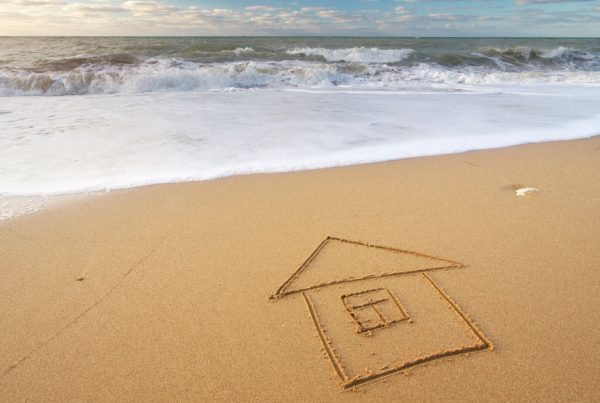Spain has always been a very attractive country for many foreigners.
Whether it is because of the 300 days of sunshine a year that we enjoy in the Mediterranean area, our gastronomy or our mild temperatures throughout the year, thousands of foreigners have their second, and increasingly their first, residence in Spain.
To all these advantages that Spain already offers us, we must add an important agent: the accessibility to buy these residences, for its price, to enjoy them or to make this purchase as an investment to rent it or perhaps to sell it after reforming it and to obtain a good economic yield of the operation.
In our new article we are going to focus on the first case, renting, and we will explain the taxes that we have to pay if we opt for this type of investment.
Are there different types of rental for housing in Spain?
Spanish legislation provides for three types of rental for housing in Spain depending on the duration and purpose of the rental of the property. The three modalities referred to in the law are:
- Long-term rental: when the rented property is used to satisfy the permanent housing needs of the tenant.
- Short-term rental: this is contemplated when the property is used to cover the temporary housing needs of the tenant. It will have a shorter duration than long-term rental but longer than tourist rental. The property will not be used by the tenant for tourist purposes.
- Holiday rental: in this case, the property will be used by the tenant for tourist purposes. The legislation establishes that owners who want to use their property for holiday rentals are obliged to register it in the Territorial Tourism Service or in the Tourist Register of the area in which the property is located.
Before you start looking for a property, you need to have a realistic and more or less closed budget. For this, you should not only take into account the purchase price of the property, but also all the additional costs such as taxes, fees and commissions of real estate agents or notaries, to name a few.
It is highly recommended to have a prior approval of the mortgage by the chosen bank in order to specify the exact costs and not to have any unpleasant surprises.
Remember that the property must meet your expectations and needs but also fit within your financial framework. before buying a second-hand property.
Holiday rental: when there is IVA involved.
Income derived from tourist rentals is, as a general rule, income from real estate capital, but with an exception:
Only if you provide a very specific rental services, typical of the hotel industry, you have the obligation to charge IVA to your tenants. In this case you receive the status of entrepreneur (art. 5.1.c VAT Law)
When services, typical of the hotel industry, are provided, the rental of a tourist flat will NOT be exempt from IVA (vat) and must be charged at the reduced rate of 10% as a hotel establishment (art 91.1.2. 2º VAT Law). That IVA charged and received from the tenants must be paid to the Tax Office later on among other fiscal obligations. You need to check with your Rental Company if you provide those hotel services to see if IVA is susceptible to be charged.
However, those leases of tourist accommodation in which the lessor does NOT provide services typical of the hotel industry are exempt from VAT. In these cases, the lessor does not have to submit or pay VAT.
In other words, you must remember that if you are an individual, this activity is not subject to IVA as long as it is only a holiday rental activity and you only offer an accommodation service.
You cannot offer extra services such as:
– Reception and permanent and continuous attention to the client in a space set aside for this purpose
– Regular cleaning of the property and the accommodation
– Regular change of bed linen and towels
– Provision of other services for the client (luggage storage, luggage storage, press, reservations, etc.),
– And, in some cases, the provision of food and restaurant services.
On the other hand, they are not considered as complementary services specific to the hotel industry, services such as:
– Cleaning of the flat on arrival and departure for the period contracted by each tenant.
– Change of linen in the flat at the arrival and departure of the period contracted by each tenant.
– Cleaning of the communal areas of the building (entrance, stairs and lifts) as well as of the urbanisation in which it is located (green areas, access gates, pavements and streets).
– Technical assistance and maintenance services for possible plumbing repairs,electricity, windows, blinds, locks and household appliances.
What is the rental taxation for non-residents in Spain?
In the case of non-residents who obtain an economic benefit from renting properties in our country, it is a necessary requirement to present a quarterly declaration at the end of each accounting quarter in which there is a positive benefit.
If the net worth for the quarter is negative, you will be exempt from filing the quarterly form. In this case, you will simply have to file an annual tax form at the end of the fiscal year, including just all negative quarters.
The tax rate applicable is 24 % on gross income. Also no deductions are allowed.
However those residents in any of the EU Countries, Norwegian or Icelandic, have a different fiscal regulation in which related expenses can be deducted, such a mortgage interest, home, insurance, property local tax, community fees,…or advertising costs, maintenance and repair costs of the property. Also the tax applicable changes to 19 % on the Benefit.
At MAM Solicitors we have over 30 years of experience in helping our clients.
If you need any kind of advice on this procedure, do not hesitate to contact us and our specialists will help you with everything you need.







